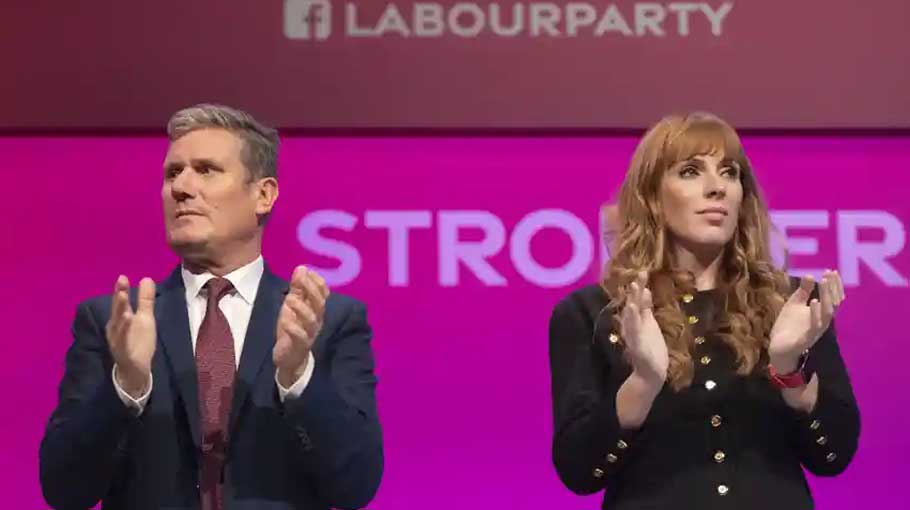PR will spell disaster for Labour
Proportional representation would make Labour majorities all but impossible, yet give the Lib Dems a permanent foothold on powe

At Labour’s annual conference this week, a motion is to be put forward calling for the party to back proportional representation (PR) for the election of MPs to the House of Commons.
There are many philosophical arguments that can be made against PR. PR makes coalition governments the norm rather than the exception. It reduces the ability of a party to deliver on its manifesto promises. It gives disproportionate weight to small parties. It encourages a more transactional form of politics, based on post-election horse-trading. It produces a more fragmented, inward-looking form of politics, whereby parties no longer need to seek broad-based electoral support in order to achieve power.
These ideas are worth debating, but there is a more immediate reason why Labour should not support PR: it would be electorally catastrophic for the party. PR would mean the end of majority Labour governments and possibly the Labour party itself.
It is easy to understand why small parties want PR. The Greens, Liberal Democrats, Ukip, the Brexit party and the BNP have all been hard done by the current first-past-the-post (FPTP) system. The electoral rationale is far more puzzling for Labour. FPTP has unquestionably been to Labour’s advantage.
Supporters of PR like to think it will produce governments of Labour, Greens
and Nationalists, collectively ushering together an eco-socialist political
programme. The problem is there are not enough votes to do this under PR
Read More: Instagram is toxic for teens
In every postwar election, with the exception of the 1950s and 2019, Labour has received a greater share of House of Commons seats than its share of the popular vote. This boost has sometimes been very substantial, giving Labour majorities it would not otherwise have. Even in minority, Labour usually gets more MPs than its proportionate strength in the electorate.
While this may seem “unfair” to opponents of Labour, it is strange that the party would voluntarily opt to weaken its own power. It is sometimes said that Labour should support PR, whatever the electoral costs, because it is “the right thing to do”. This attitude fetishises process and ignores the importance of outcomes. The FPTP system in Britain gives a boost to the major party of the left, making leftwing majority governments possible where they might not otherwise be. Surely, at least to party members, electing Labour governments is also “the right thing to do”.
There is also the alternative to consider. PR will not deliver majority leftwing governments in Britain. Supporters of PR like to think it will produce governments of Labour, Greens and Nationalists, collectively ushering together an eco-socialist political programme. The problem is there are not enough votes to do this under PR.
With the exception of the remarkable 1945 election, the British public have never voted in a majority for leftwing parties. Adding together the votes of Labour, the Greens, the SNP and Plaid Cymru at every other general election has never amounted to more than 50 per cent of the vote. This is not to say that leftwing governments are impossible under PR, but there is virtually no evidence from British election history that more than 50 per cent of British voters are prepared to vote for leftwing parties.
PR would make one party very powerful indeed: the Liberal Democrats. In fact, if MPs were allocated proportionately, the Lib Dems (and the SDP and Liberals before them) would have decided nearly every single British government in postwar history. While some commentators like to fantasise about the Lib Dems as left-of-centre fellow travellers, their recent record in government does not bear this out. When faced with the choice between giving the Conservatives a majority or supporting a Labour-led coalition in 2010, the Lib Dems opted for five years with the Conservatives, supporting some of the most vicious attacks to the British welfare state and public realm in recent history.
From a purely pragmatic view, Labour’s enchantment with PR makes little sense. From what we know about the British electorate, PR would eliminate the possibility of a future majority-Labour government. PR would not guarantee leftwing coalition governments either. What it would mean is the Lib Dems would effectively get to choose the prime minister after each election. You can understand why they are so keen, but why are Labour members?
Dr Richard Johnson is a lecturer in politics at Queen Mary University of London
Related Opinion News:




